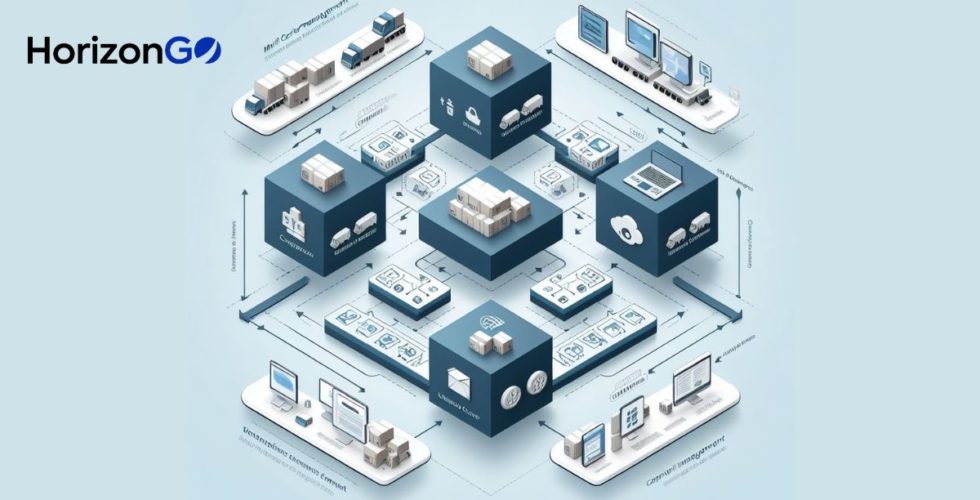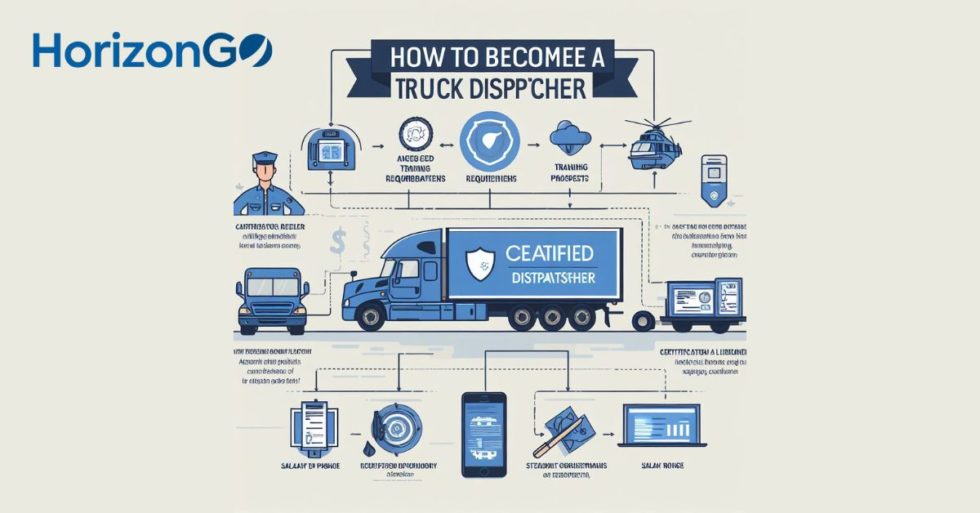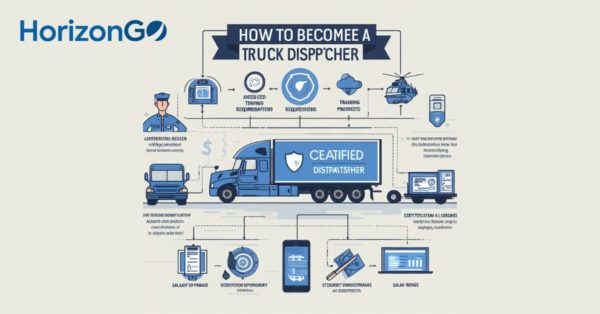✅Quick Answer
A carrier management system (CMS) is a software solution that helps businesses manage their relationships with transportation carriers. It can be used to manage the entire carrier lifecycle, from carrier selection and onboarding to contract management, performance monitoring, and dispute resolution.
The Carrier Management Software (CMS) solution is a comprehensive transport management system (TMS). Its main aim is to apply, monitor, and analyze service criteria and the KPI of shippers frequently used.
The system is appropriate for many companies and businesses, with customized interfaces and reporting tools that are simple and user-friendly.
Fuel taxes, contract discussions, on-time delivery, and other essential data may be tracked using these systems. These kinds of systems may even collect information from consumers or recipients of your products in real time.
So, those details concealed freight damage, driver politeness, expertise, and other critical customer service guidelines.
CMS is now an additional tool in the TMS. It enables a transporter to employ a single, simple-to-use Carrier TMS software system for all of its shipping requirements.
It may be integrated with a firm’s available transport management software to provide fast pricing information from various suppliers. They may then analyze the company’s progress with the CMS once they have this information.
What Is Carrier Management System (CMS)?
Carrier management is a part of the transportation carrier that uses carrier evaluations, deal and rate management, and claims management to help organizations monitor and control service operations. It provides insight through information, assists in essential corporate decision-making, and facilitates carrier cooperation.
The Transportation Spend Management (TSM) Progression Model includes carrier management as an essential part. However, this model offers a framework for major worldwide organizations to go from a shortage of flexibility and control to a thoroughly efficient and accurate data-driven transportation supply chain.
These technologies offer the shipper a strategic advantage by verifying they choose the best carrier manager for the project. There’s no need to conflate, and there’s no need for last-minute modifications. Modern CMS can view several carrier performance indicators. Some of these are:
Performance of the Carrier
Several performance factors are critical when hiring a transporter to deliver clients’ items. The primary practical measure is to check that the goods arrive on time. The CMS receives on-road feedback operations from both the consumer and the carrier.
The data is compared to guarantee consistency. If differences are discovered, it can inform you by email or other specified communication settings. It enables you to do a detailed follow-up with the consumer.
Delays in Shipping
Many transporters use GPS monitoring to give shippers real-time updates on the progress of their delivery. The CMS can gather this information and analyze any delivery delays caused by traffic, weather, or driver limitations.
A CMS keeps track of the data. If the information presented to you does not match the data in your CMS, this is a red flag and should be investigated further.
Auditing of Freight Bills
Actual billing is one of the main criteria for operator performance. Unique, signed agreements are issued to each carrier, including fuel costs, delivery costs, and other issues. The carrier management software will notify customers if the data on a bill is not correct in comparison. So, this warning helps you evaluate if the problem was caused by a mistake or a deliberate alteration.
CMS Signs
CMS signs are electronic signature solutions that allow businesses to sign contracts and other documents electronically with their carriers. This can save businesses time and money, as they no longer need to print, sign, and mail documents back and forth.
Carrier Software Systems
Carrier software systems are software solutions that help businesses manage their relationships with carriers. These systems can help businesses negotiate rates, book shipments, track shipments, and manage contracts.
CMS Transportation Tracking

CMS transportation tracking is a feature of many CMS that allows businesses to track their shipments in real time. This can be a valuable tool for businesses that need to keep track of the location of their goods at all times.
The Road to Efficiency: Testing Carrier Management Systems in California
California, the land of endless highways and ambitious logistics, is the perfect testing ground for innovative Carrier Management Systems (CMS). Whether you’re hauling oranges from the Central Valley or tech components from Silicon Valley, finding the right carrier is crucial for efficient and cost-effective transportation.
Putting CMS to the Test:
CMS Test California: This program could be an initiative by the California Department of Transportation (Caltrans) or a private testing consortium. It aims to evaluate various CMS platforms under real-world California conditions, focusing on factors like fuel efficiency, safety compliance, and route optimization.
CMS Test Highway: This could be a specific test segment within the larger CMS Test California program, focusing on performance on different highway types (rural, urban, mountain passes) and weather conditions (fog, heavy rain, scorching heat).
By pushing CMS capabilities to their limits, developers can identify strengths and weaknesses, leading to more robust and adaptable systems.
Beyond the Test Track:
Carrier Monitoring Service: Real-time data from on-board CMS units can be used by companies to monitor carrier performance metrics like on-time deliveries, fuel consumption, and adherence to safety regulations.
This transparency empowers shippers to make informed decisions about carrier selection and hold them accountable for performance.
Carrier Selection Software: CMS data can be integrated into AI-powered carrier selection software, providing shippers with instant recommendations based on specific transportation needs.
This software could consider factors like route complexity, cargo type, and real-time traffic conditions, ensuring the optimal carrier match for every shipment.
CMS Sign: Imagine digital signages along California highways displaying real-time information about available carrier capacity, optimal routes, and even weather alerts. This “CMS Sign” initiative could revolutionize logistics coordination, benefiting both shippers and carriers.
What is Multi-Carrier Management?

Imagine juggling multiple balls in the air, each representing a different carrier, shipment, and set of requirements. Multi-carrier management is like that, but with a lot more complexity. It’s the process of:
- Selecting the right carrier for each shipment: This involves considering factors like cost, speed, reliability, and specialized capabilities for specific cargo types.
- Managing relationships with multiple carriers: Building strong partnerships ensures preferential rates, access to capacity, and proactive communication.
- Tracking shipments across different platforms: Keeping tabs on the location and status of every package, regardless of the carrier, is crucial for customer satisfaction and proactive issue resolution.
What is a cms test on the highway? A CMS test on highways is an evaluation of a Carrier Management System (CMS) under real-world driving conditions.
Multi-Carrier Transport Management System
A multi-carrier transport management system (TMS) is a software solution that helps businesses manage their shipments with multiple carriers. This can be a valuable tool for businesses that ship a large volume of goods or that ship to multiple locations.
Carrier Management Services
Carrier management services are services that help businesses manage their relationships with carriers. These services can include negotiating rates, booking shipments, tracking shipments, and managing contracts.
Frequently Asked Question
What is a Carrier Service?
Carrier Services refers to a group of internet, transportation, and other services offered through one or more third-party telecommunication companies and sold through Switching or bought directly by the Client. Besides the Switching system, “Client Equipment” refers to computer devices, software, hardware, and other items placed by customers in the Flexible workspace Space. The definition of capitalized phrases not stated below is found in the Service Contract.
What is a Carrier in shipping?
A carrier in logistics is a company or individual with the legal authority to deliver goods by land, sea, or air. Typically, the cargo collaborates with shipping companies to transport products from one place to another.
How can a CMS improve carrier management in transportation?
A CMS can improve carrier management in transportation by providing a centralized platform for managing carrier relationships, automating carrier selection and onboarding processes, and providing real-time visibility into carrier performance.
What is carrier contract management?
Carrier contract management refers to the process of managing contracts with transportation carriers, including negotiating rates, terms and conditions, and ensuring compliance with regulatory requirements.
What is a carrier manager?
A carrier manager is a transportation professional responsible for managing carrier relationships, including carrier selection, contract negotiations, and performance tracking.
What is a TMS system for carriers?
A TMS system for carriers is a transportation management system designed specifically for carriers, providing tools for managing carrier relationships, optimizing carrier selection and dispatch, and improving visibility into carrier performance.
What is a contract management system (CMS)?
A contract management system (CMS) is a software solution designed to help organizations manage their contracts, including contract creation, negotiation, execution, and tracking.
How can a CMS help with carrier contract management?
Answer: A CMS can help with carrier contract management by providing tools for managing contract templates, negotiating and executing contracts, tracking contract performance, and ensuring compliance with regulatory requirements.
What are contract management solutions (CMS)?
Contract management solutions (CMS) are software solutions designed to help organizations manage their contracts, including contract creation, negotiation, execution, and tracking.
What is CMS TMS?
CMS TMS refers to a transportation management system that includes contract management capabilities, allowing transportation companies to manage their carrier contracts alongside other transportation operations.
What are some benefits of using a TMS system for carriers?
Some benefits of using a TMS system for carriers include improved carrier selection and dispatch, better visibility into carrier performance, streamlined carrier payments and billing, and improved customer service through better tracking and reporting.
Conclusion
Carrier management systems can be customized to a given sector, professional business, or carrier transport type. An effective 3PL service is the most acceptable information source for designing and implementing a carrier management system. Therefore, our customers can benefit from our detailed knowledge and reducing technology to check carriers’ progress that promotes their brands.










